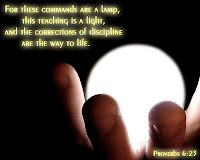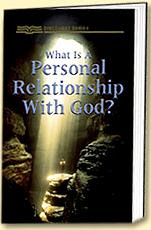Do not love the world nor the things in the world. If anyone loves the world, the love of the Father is not in him. (1 John 2:15 NAS)
 Much knowledge and information have been gained from the Internet, but with each gain also comes the negative effects influencing and intruding the private lives of many.
Much knowledge and information have been gained from the Internet, but with each gain also comes the negative effects influencing and intruding the private lives of many.One of the greatest negative effects that influence private lives is the easy access to pornographic materials on the web. These materials intrude the lives of families and often destroy wholesome relationships. It is not just a male affair as it involves the female too. If women have not been willing to strip or pose for pornography, there would not have been so much pornography available. Likewise, there are men who pose for women too, so either way, sin prevails.
Voyeurism, according to the Webster Dictionary, refers to "one obtaining sexual gratification from seeing sex organs and sexual acts; broadly: one who habitually seeks sexual stimulation by visual means".
In the information age today, getting materials of visual sexual stimulation is very easy. Pornography in cyberspace is accessible 24 hours a day and available everyday on the web. No amount of measures taken by watchdogs can completely wipe out access to these materials. Whether it is interactive games or web viewing, pornographic materials are here to stay. Voyeurists no longer need to go to underground places to seek such material; they can get it right at home on the computer.
What then have we gained from technology? Is it better knowledge or is it worst? What has become of the world today?
For all that is in the world, the lust of the flesh and the lust of the eyes and the boastful pride of life, is not from the Father, but is from the world. (1 John 2:16 NAS)
... everyone who looks at a woman with lust for her has already committed adultery with her in his heart. If your right eye makes you stumble, tear it out and throw it from you; for it is better for you to lose one of the parts of your body, than for your whole body to be thrown into hell. (Matthew 5:28-29 NAS)
Therefore, "do not love the world nor the things in the world. If anyone loves the world, the love of the Father is not in him" (1 John 2:15 NAS).
Dear Lord, forgive us for the times we fail to keep ourselves holy, and the times we fall into sin in our lust for the flesh—of things from this world that draw us away from walking faithful in You. We know Lord the things we do that upset our families and sometimes even destroy relationships. We pray O God that as we confess before You our sins that You wil help us to be strong and turn away from the enticement of this world. Renew us Lord as we give up our old ways to walk faithful in You to live holy lives. Strengthen us dear God that we may hold fast to the faith and not be lured away from doing the right thing, especially with the abounding temptations coming from cyberspace and the Internet. Keep us safe and focused Lord that we may always remember You in the moments of our weakness. Thank You Lord for setting us free!
NOTE: For more information and help overcoming sin of voyeurism and pornography, read RBC's booklet on Breaking the Power of Pornography, or take an interactive online course by Setting Captives Free on Way of Purity.

















